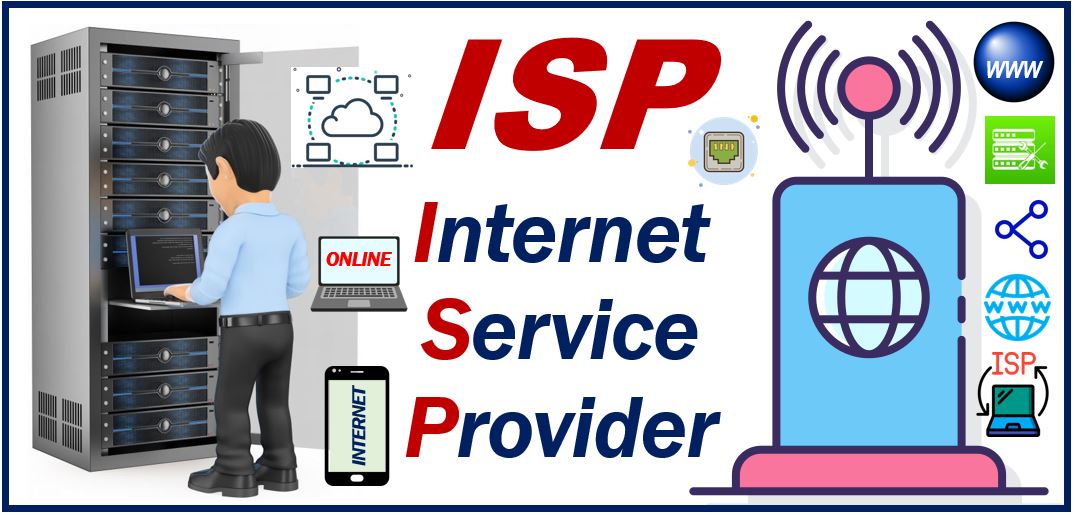The letters ISP stand for Internet Service Provider, which is an industry term for a company that provides home users, businesses, government departments, educational institutions, non-profit organizations, healthcare facilities, and other entities with Internet access.
Typically, this access is from a computer. Anybody who is talking about the Internet and mentions their provider is referring to their ISP.
Put simply, an ISP is a company that gives both individuals and businesses access to the internet. AN ISP lets you get online to browse websites, shop, conduct business, and stay connected with loved ones, all in exchange for a fee.
Other meanings
ISP also stands for In System Programming, International Specialty Products, Information Service Provider, Innovative Service Program, and Iron Sulfur Protein, among others. In this article, we shall focus on its meaning in the world of the Internet.

ISP gives you access
Without an ISP, it would not be possible to access your social medial platform, shop online, or even read this article. Specific telecom networking systems and routing equipment are required to get online. With an ISP, you get access to those networks.
It is a fairly new term, having only been around for about three decades (since 1990).
An ISP may offer several services
Most Internet Service Providers today also have other facilities in their range of products for customers. They may, for example, offer domain registrations, web hosting, browser packages, telephone connections, data communication access, and email services.
Most ISPs provide customer support and technical assistance, often 24 hours a day, to ensure a seamless internet experience.
Cloud computing
Cloud computing refers to the delivery of computing services over the Internet. Rather than working on, for example, files that are stored on your computer’s hard disk, they are kept in a remote computer. We refer to this remote computer as the cloud.
This means that you can work from anywhere with any laptop, desktop, tablet, or smartphone, as long as you have an internet connection.
According to Explain That Stuff, cloud computing means you don’t need to have all your computer hardware and software stored on your own device or within your company’s network. Instead, another company provides these resources as a service over the Internet, so you can access everything seamlessly without worrying about where it’s physically located as it’s all hosted “in the cloud.”
Users pay a fee
Most Internet Service Providers charge a fee of between $30 to $100 each month – typically for unlimited access. Before committing yourself to a provider, make sure you know what the total monthly rate is, i.e., read the small print carefully.
Customers pay for just one Internet connection. They can then set up a network in their homes, schools, or offices with other tablets, smartphones, computers, TVs, and various smart devices. Smart, in this context, refers to gadgets or devices that are able to connect to the Internet. Computer software, some with AI, makes them intelligent (AI – Artificial Intelligence).
ISPs also play a crucial role in cybersecurity, offering various protective measures to guard against online threats.
How do ISPs work?
To connect to your provider, you must have an active account and a modem. Your modem connects with your ISP via the telephone line or a cable outlet.
When the ISP has verified your account, it assigns an IP address to your modem. You have Internet connection as soon as your modem has an IP address.
